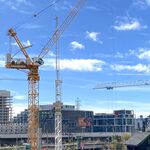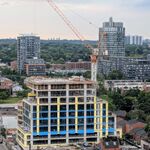How does the private company split that single fare with the public transit commission? Who gets what share?
If it will be highly competitive with the B-D line, what compensation should there be to the TTC for siphoning off their subway passengers (compensation that would ultimately be paid by the riders)?
What happens when there is a problem on the private line and there is a need to run shuttle buses. Who pays?
What if the private company decided to find 'efficiencies' and reduce service and hours of availability? What if they felt they needed more money in order to be profitable?
Do you know for a fact what BBD's commitment would be to be fully automated and kept spic and span clean or are you just hypothesizing?
Has BBD ever expressed an interest in actually operating a transit line and not just providing the vehicles to run on it?
Just some of the many issues that arise when you start mixing public and private.
Short Answer: See Vancouver Canada Line.
Long Answer:
A) I do not know how the fare revenue is split with Translink in Vancouver but I can personally assure you, it is one system.
B) Why should the TTC be Compensated another company for being successful in having a good ridership when it did its part in providing funds for building the line in the first place?
Thats like saying that GO Transit should be compensating the TTC for riders that used Bloor Station (Georgetown Line) to go Downtown instead of using the Bloor-Danforth Subway.
C) I think the private company should be responsible for that. Maybe they would compensate the TTC for having to put extra buses but yes i think it should be their responsibility.
D) I think there should be service guidelines in place. Example, the private operator for Canada Line made a minimum threshold that should be met and if it went below that level, the TTC has to compensate for it. I think on an extensive corridor such as Eglinton that would stretch from Pearson Airport to Malvern Town Centre should do just fine. Does the subway have to run every 5-6 minutes at 1am? I think no it does not (maybe weekends). Ultimately, when talking about an automated system, i think the difference in frequencies makes a lesser impact on operating costs.
E) This is all speculation/hypothesis/ideas. Nobody is coming on this forum and making an RFP...its a forum. relax.
F) Bombardier was one of the bidders for the Canada Line project but they lost out to ROTEM...which built the line.
What ultimately needs to be explained here is...how can Translink build an entire rapid transit line with 2 brances for only $2.4 Billion Dollars?
This means Underground from City Centre to Marine Drive. A New transit only cable stayed bridge over Fraser River, and the remainder elevated with a branch to the airport and terminus at Richmond.
Then looking at operating costs. Subway stations have zero employees. Trains are automated.
Platform lengths are shorter than what we are used to in Toronto but if we are building a suburban line, do we need the standard 6-car length?
An automated line + short frequencies can more than make up for the large captial costs of building enormous 6-car platforms.
I Understand if we were comparing transit systems between countries but toronto and vancouver is fair game and someone has to answer why toronto's figures are always bloated!




